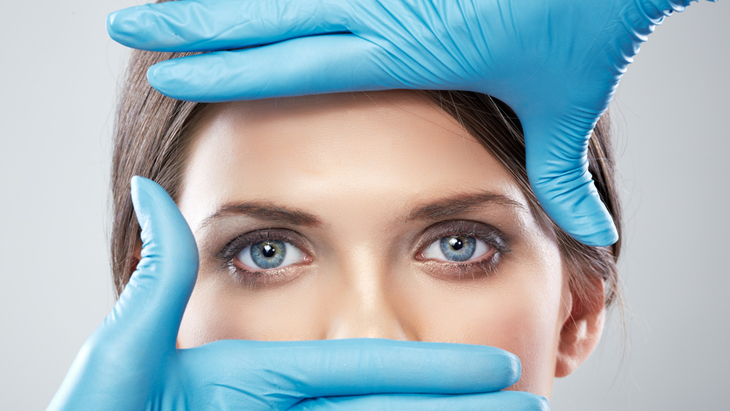Private acne treatment: what's available
By Kathryn Senior on 22 July 2022
A wide variety of acne treatments are available. Many can be purchased over the counter, some are available on prescription and others need to be provided by qualified health professionals. As acne is not a life-threatening condition, many GPs sympathise with teenagers who are struggling with acne but have limited acne treatment resources on the NHS. Private acne treatment is an attractive option as this provides newer therapies, more choice and shorter waiting times.
Why is it necessary?
Acne treatment is most often sought by teenagers. As hormone levels fluctuate during puberty, the skin often over produces sebum and other oils, which clog up the openings to the sebaceous glands. Crops of spots and pimples break out over the face and forehead and sometimes also on the back and chest. In many young people, spots are easy to treat and quick to heal. In others, the spots become infected by Propionebacterium acnes, a common skin bug that causes the spots to become much worse. The bacteria feed on the excess sebum and then irritate the skin causing large dark red and angry spots. Without effective acne treatment these more serious spots can become deep pits that can scar the skin permanently.
Both the acute phase of acne and the scarring that follows cause tremendous distress to young people. They can suffer from lowered self-esteem, problems with self-confidence and they can lose out on having a normal and active social life. Getting early acne treatment can prevent a lot of heartache and misery.
Private consultations
If you visit your GP with acne, he or she can prescribe antibiotic lotions, creams containing vitamin A derivatives, preparations containing benzoyl peroxide or azelaic acid and some antibiotics and hormones that are taken as tablets. In milder cases, this type of acne treatment can be effective but for severe acne treatment, a consultation with a dermatologist is usually advised. Waiting times in the NHS system are long – around six months is average. If you opt to see a dermatologist in private practice, your appointment can be arranged more quickly and you will receive a prompt and expert opinion on what treatment will work best in your case.
Private treatments
The acne treatments available privately include medicines and skin treatments, including laser treatments:
A private dermatologist can prescribe contraceptive pills containing ethinylestradiol and cyproterone acetate. Dianette is a popular brand. The purpose of the treatment is not to prevent pregnancy but to lower the amount of male hormones that women produce naturally. Doing this helps to suppress sebum production. This treatment is not a suitable acne treatment for boys.
Private treatment can also include a prescription for a retinoid such as isotretinoin (brand name Roaccutane). This drug is also available in creams but the tablets are often prescribed in very severe cases of acne to keep sebum production to a minimum. Your dermatologist needs to monitor you carefully for side effects and this drug must not be taken if you are pregnant, or planning to become pregnant.
A fairly new private acne treatment involves laser therapy, which is proving effective even in the most severe cases (see below).
Private clinics often offer skin peels, either with enzyme acne treatments or in conjunction with laser therapies to both treat the spots and to reduce the possibility of scarring (see below).
Non-invasive laser treatment
This acne treatment has been widely featured in the media during the last couple of years and it does seem to bring about dramatic changes in the skin of people affected by severe acne. Suitable for acne treatment on the back, shoulders, neck and chest as well as the face, this type of laser treatment is only available privately. Acne treatments with a laser start at around £250 - £300. The most effective results are seen if the laser acne treatment is given in three separate sessions, each a few weeks apart. The benefits last 6-9 months, and can be ‘topped up’ by maintenance laser treatments. For very severe cases that are causing psychological distress, this acne treatment is worth the cost.
Private treatment to reduce scarring
Most people find that the acute phase of acne is over by their early 20s but they may be left with deep pits and scars that refuse to fade. A major facet of private acne treatment involves dealing with this scarring, making it less noticeable. Techniques include:
Dermabrasion or chemical peels – if the scars left by acne are not too deep, a chemical peel or dermabrasion treatment can make the skin appear much smoother.
Dermaroller acne treatments – a roller with microneedles is run over the skin to encourage it to regenerate from the lower layers of the dermis. A visible improvement is possible in about 6 weeks.
Cosmetic surgery using punch techniques – minor surgery using a punch biopsy tool may be necessary to deal with deep pits, often called ice pick acne scars.
Ablative laser acne treatments – these can be used to remove the top layer of skin, encouraging new growth from the dermis, so that the skin is smoother and less pitted.
Non-ablative laser acne treatments – lasers can also stimulate the dermis directly, causing little skin peeling and faster recovery.
Microdermabrasion – this is an exfoliation technique that can remove the outer layer of dead skin cells, lessening the appearance of more superficial scars.
Did you enjoy this? Share:

